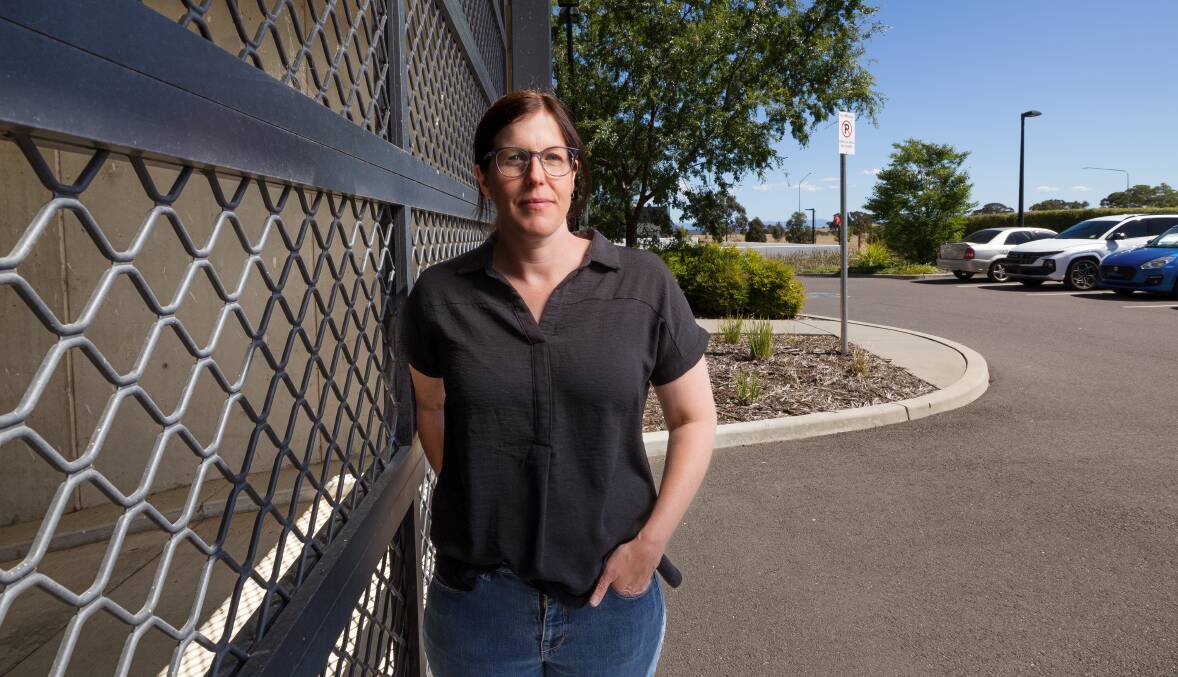
Sally Holliday lives in a block of 40 units in Gungahlin which she says were built with half that number of underground parking.
Ms Holliday said it's not just residents who are adversely impacted, it's the delivery drivers, visitors, cleaners and contractors who are all unable to get close to the building.
The disability support worker says despite living close to the Gungahlin shopping precinct, Canberra's existing public transport network doesn't allow her to get across the city to visit clients.
"I used to live in Melbourne and I used to catch public transport most days, the system was very well set up for me to do that and leave my car at home," Ms Holliday said.
"I would say Canberra, despite the fact that it's a very liveable city, it's not set up for that."
Community groups agree public transport connectivity must come before fewer car parks to avoid unfairly impacting residents of outer suburbs, who tend to own more cars and be more reliant on them to get to work.
Their comments have come in response to Planning Minister Mick Gentleman's suggestion the planning authority could soon approve plans for buildings with vastly reduced car parks.
Ms Holliday said her experience was that people in apartments without enough car parks ended up paying additional fees to rent basement space or park on the street, with fewer spots benefiting a select few.
"If you've got a government job and you're able to commute from Gungahlin into the city every day to the same building to the same desk, great," she said.
"If you're not that person, I would say you need a car. If you've got a family with children, you need a car."
Households living in the Canberra electorate own 1.6 cars per dwelling on average. That number increased to 1.8 per dwelling when expanded out to the rest of the ACT, Census data from 2021 reveals.
Molonglo Valley Community Forum spokesperson Ryan Hemsley said new suburbs in the outer west were already feeling the impact of parking pressures.
He said construction that was set to continue well into the future was compounding the issue, as residents fought builders and contractors for street parking.
Mr Hemsley said while bus services along John Gorton Drive to the city had gotten better, more improvements were required to ensure optimal connectivity for residents in the Molonglo region.
The ACT government has suggested changes to allow fewer car parks would drive down the cost of apartments, as developers would pass on the savings.
Acting ACT executive director of the Property Council of Australia Ross Grove said Canberra needed to break free from the parking settings of the past as key centres across the city transition toward light rail and public transport solutions.
"There are no winners when apartment buildings incur the cost of excavating for parking spaces that don't get used. It costs the developer more, and that cost is borne by home buyers," Mr Grove said.
"In the world of growing public transport, light rail and Uber, there is a growing cohort of Canberrans who are either ditching the second car or dropping car ownership altogether. These people ought to have their housing needs reflected in a modern planning system."
ACT Council of Social Services' interim CEO Gemma Killen said the advocacy group is certainly supportive of mechanisms designed to provide more affordable housing.
"However, I am concerned that people on low incomes, who are more likely to live in over-crowded housing, will be unfairly impacted, as well as older people or people with disabilities who currently face a pretty inaccessible and sparse public transport network," Ms Killen said.
Shadow planning minister Peter Cain said cuts to bus services and "timetable disasters" by the Labor-Greens government had ensured public transport remained inadequate.
"While encouraging choice in lifestyle is commendable, the stark reality is that the overwhelming majority of Canberrans use, and need to use, motor vehicles," Mr Cain said.
Consultation on the government's draft district planning strategies remains open for public comment until March 3.
Correction: An earlier version of this report said the average household in the ACT had 2.7 cars. The correct figure is 1.8.
We've made it a whole lot easier for you to have your say. Our new comment platform requires only one log-in to access articles and to join the discussion on The Canberra Times website. Find out how to register so you can enjoy civil, friendly and engaging discussions. See our moderation policy here.







